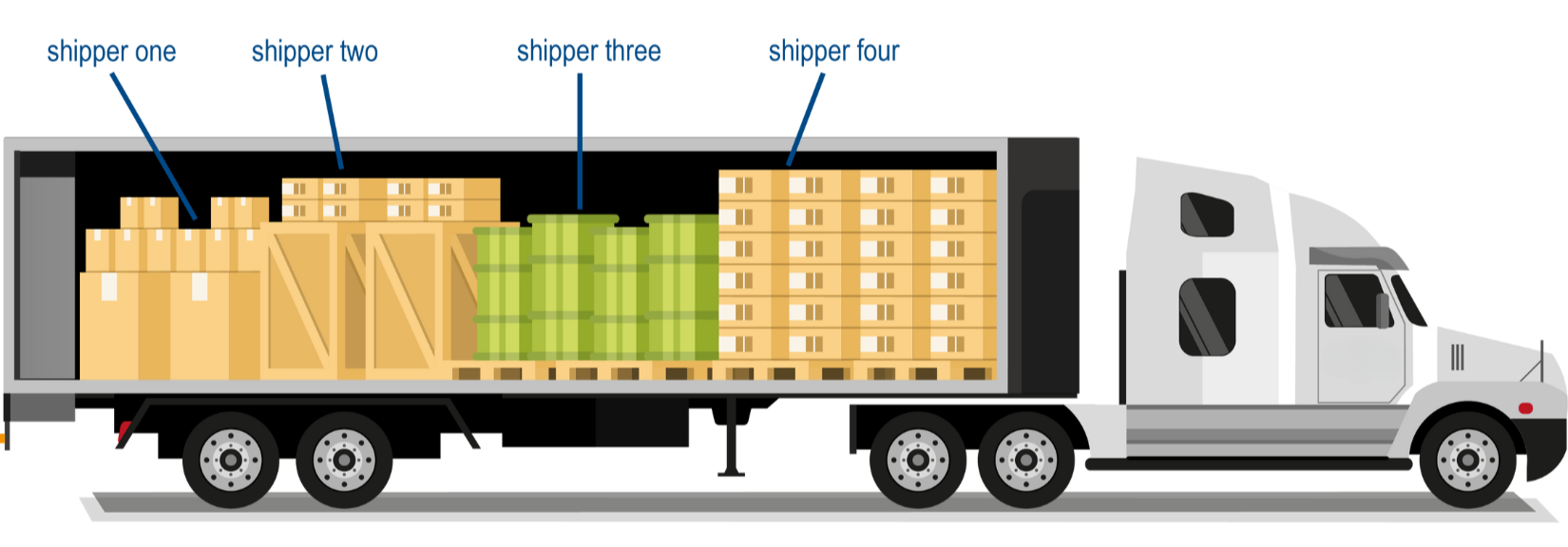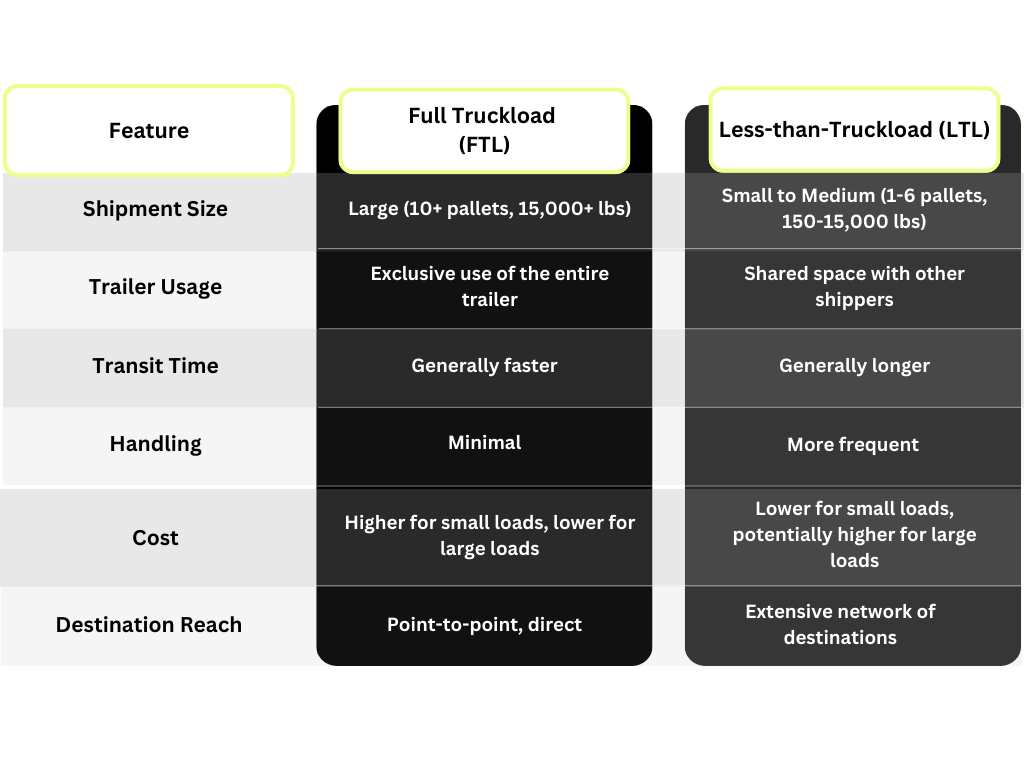FTL vs. LTL: Choosing the Right Freight Shipping Method for Your Business
In the world of logistics, selecting the most efficient and cost-effective shipping method is paramount. Two of the most common options businesses encounter are Full Truckload (FTL) and Less-Than-Truckload (LTL) shipping. While both serve the fundamental purpose of transporting goods, they cater to different needs and offer distinct advantages and disadvantages. Understanding the nuances of each can significantly impact your supply chain's efficiency and your bottom line. Let's delve into a comprehensive comparison of FTL and LTL to help you determine the best fit for your specific shipping requirements.
Full Truckload (FTL) Shipping: The Dedicated Approach
FTL shipping involves contracting an entire truck and trailer for the exclusive transport of your freight. Whether your shipment completely fills the trailer or not, you are essentially paying for the entire capacity.
Key Advantages of FTL:
Speed: Direct transit from origin to destination minimizes delays and results in faster delivery times.
Reduced Handling: With fewer transfers, the risk of damage, loss, or theft is significantly lower.
Dedicated Capacity: You have exclusive use of the trailer, ensuring space availability and control over the shipping schedule.
Potentially Cost-Effective for Large Shipments: For substantial volumes, FTL can be more economical than multiple LTL shipments.
Important Considerations for FTL:
Higher Cost for Smaller Loads: Paying for an entire truck when you only need a fraction of the space can be less cost-effective for smaller shipments.
Responsibility for Full Truck Cost: You bear the expense of the entire truck, even if it's not fully loaded.
Less Flexibility for Adjustments: Once booked, changes to the shipment can be less easily accommodated.
Less-Than-Truckload (LTL) Shipping: The Consolidation Solution
In contrast, LTL shipping is designed for freight that doesn't require a full truckload. Your shipment is combined with goods from other businesses heading in similar directions, sharing the trailer space.
Key Advantages of LTL:
Cost Efficiency for Smaller Volumes: You only pay for the portion of the trailer your freight occupies, making it ideal for smaller shipments.
Extensive Network Reach: LTL carriers have vast networks, providing access to a wide range of destinations.
Service Flexibility: Many LTL providers offer additional services like lift gates and inside delivery.
Important Considerations for LTL:
Longer Transit Times: Consolidation and terminal stops can lead to longer delivery times compared to FTL.
Increased Handling: Your freight will be handled multiple times, increasing the potential for damage (though reputable carriers take precautions).
Complex Pricing Structure: Rates are based on various factors, including weight, dimensions, freight class, and distance.
Cost-Effectiveness Threshold: For larger, denser shipments, FTL can sometimes be more cost-effective than LTL.
A Side-by-Side Comparison:
To further illustrate the differences, here's a table summarizing the key aspects of FTL and LTL shipping:
When to Choose FTL:
Large Shipments: When you have enough freight to fill or nearly fill an entire truck.
Time-Sensitive Deliveries: When speed is a critical factor and you need your goods to arrive as quickly as possible.
High-Value or Fragile Goods: The reduced handling minimizes the risk of damage or loss.
Specific Delivery Requirements: If you need a direct, point-to-point delivery without terminal stops.
When to Choose LTL:
Smaller Shipments: When your freight doesn't require a full truckload, making it a more cost-effective option.
Budget-Conscious Shipping: When cost is a primary concern and you have some flexibility in transit time.
Multiple Destinations (Potentially): While FTL is point-to-point, LTL networks can efficiently handle shipments to various locations within their service area.
Need for Specialized Services: When you require services like lift gates or inside delivery.
How Mustang Freight Solutions Can Help You Decide:
Choosing between FTL and LTL can be complex. At Mustang Freight Solutions, we leverage our expertise and extensive network to help you make the optimal decision for your unique shipping needs. We take the time to understand your:
Shipment Details: Weight, dimensions, and the nature of your goods.
Destination and Timeline: Where your freight needs to go and when it needs to arrive.
Budgetary Constraints: Your cost considerations.
Specific Service Requirements: Any special handling or delivery needs.
By analyzing these factors, we can provide you with a clear comparison of FTL and LTL options, offering competitive rates and guiding you towards the most efficient and cost-effective solution. Whether you require the dedicated speed of an FTL shipment or the cost-saving consolidation of LTL, Mustang Freight Solutions is your trusted partner in navigating the complexities of freight transportation.
Contact us to discuss your shipping needs and let our experienced team help you choose the right path for your freight.




